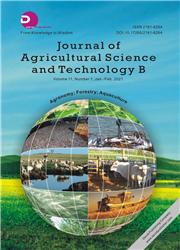Facilitating Trade in Organic Food Products: The Case of India and ASEAN
引用次数: 0
Abstract
This paper discusses how India and Association of Southeast Asian Nations (ASEAN) countries can increase their trade in organic food products. With rise in demand for organic food products globally, India and select ASEAN member countries have become key producers and exporters of organic food products. Trade in organic food products is governed by regulations, standards, certification and accreditation procedures, which enables differentiation of organic products from conventional products. Organic standards ensure premium price for the farmers and producers, while consumers are assured of authenticity of the product. Standards can act as a barrier to trade as regulations governing organic food products can vary across countries. Some countries are also in process of developing regulations. This paper discusses the role of different multilateral agencies in designing standards and how countries can address issues of difference in standards by signing unilateral and bilateral equivalence arrangements, trade agreements and harmonizing their standards within regional groups. It also discusses how India and ASEAN countries can align their domestic regulations in line with the global best practices so that they can sign equivalence arrangements to enhance their exports. The paper concludes that measures such as coming up with a comprehensive definition of “organic”, having a uniform standard for organic products encompassing domestic market and trade, having a single nodal agency for both domestic market and exports, developing organic clusters and reducing the cost of third-party certification will help enhance trade in India and ASEAN, and enable these countries to access third country markets.促进有机食品贸易:以印度和东盟为例
本文讨论了印度和东南亚国家联盟(东盟)国家如何增加有机食品贸易。随着全球对有机食品需求的增加,印度和部分东盟成员国已成为有机食品的主要生产国和出口国。有机食品的贸易受到法规、标准、认证和认可程序的规管,这使得有机产品与传统产品有所区别。有机标准确保了农民和生产者的优质价格,同时消费者对产品的真实性也有了保证。标准可能成为贸易障碍,因为管理有机食品的法规在不同国家可能有所不同。一些国家也正在制定规章制度。本文讨论了不同多边机构在制定标准方面的作用,以及各国如何通过签署单边和双边对等安排、贸易协定和在区域集团内协调其标准来解决标准差异的问题。它还讨论了印度和东盟国家如何使其国内法规与全球最佳做法保持一致,以便它们能够签署同等安排,以促进其出口。本文的结论是,制定“有机”的综合定义、制定涵盖国内市场和贸易的统一有机产品标准、为国内市场和出口建立单一的节点机构、发展有机集群和降低第三方认证成本等措施将有助于促进印度和东盟之间的贸易,并使这些国家能够进入第三国市场。
本文章由计算机程序翻译,如有差异,请以英文原文为准。
求助全文
约1分钟内获得全文
求助全文

 求助内容:
求助内容: 应助结果提醒方式:
应助结果提醒方式:


